SUMMARY
This is AI generated summarization, which may have errors. For context, always refer to the full article.
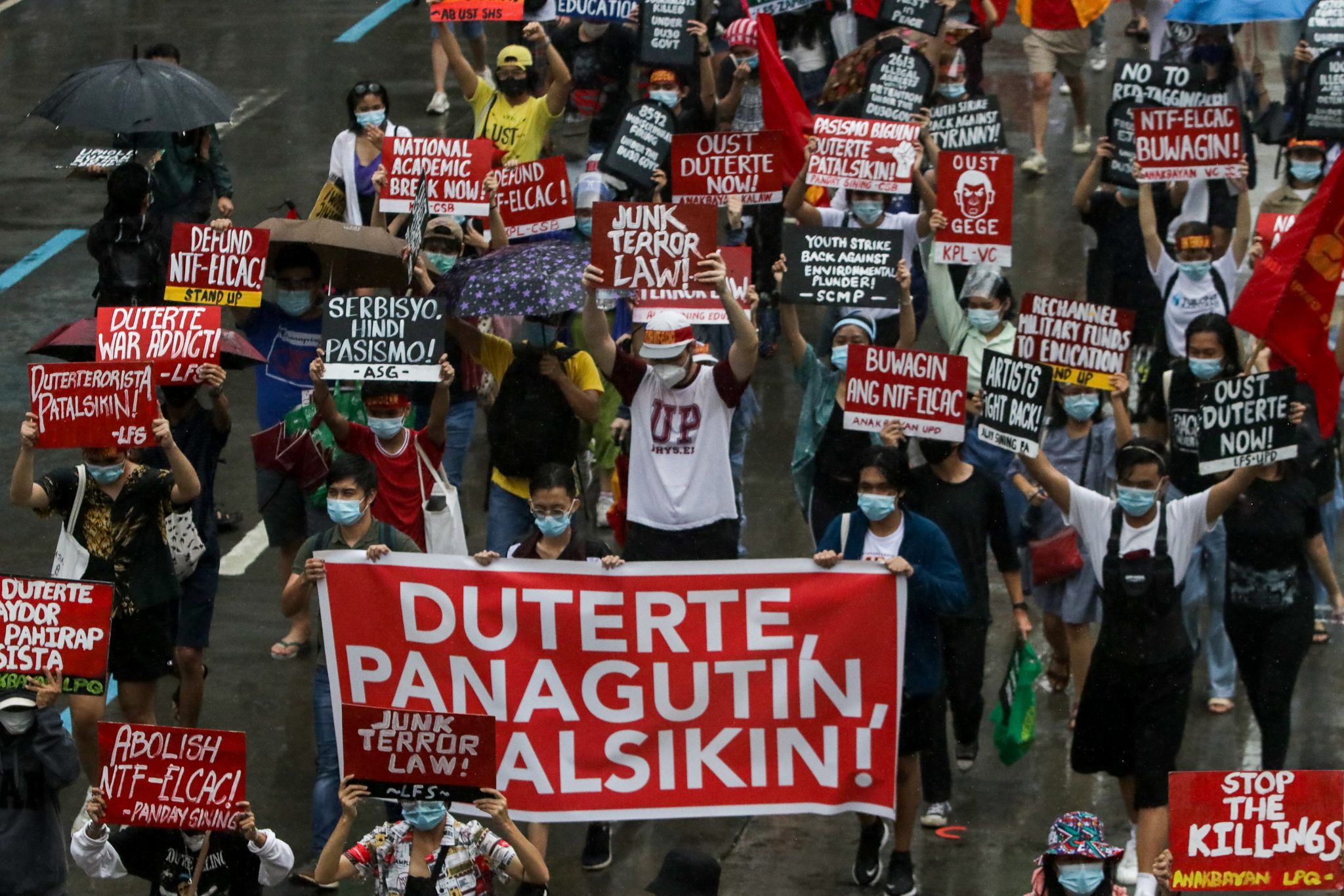
The heavy rain didn’t stop groups from marking International Human Rights Day on Thursday, December 10, with a renewed call to push back against abuses, violations, and the thriving culture of impunity under the administration of President Rodrigo Duterte.
Marching towards Mendiola, the groups called for justice for the victims of extrajudicial killings, the release of political prisoners, and the junking of the controversial anti-terror law, which many fear would further erode democracy in the country.
They also slammed the government for its inadequate response to the coronavirus pandemic.
In a statement, Karapatan warned that Duterte is gearing up for a “more violent, more rabid, and more brutal crackdown” on all forms of dissent with the implementation of the anti-terror law.
Global research tool CIVICUS Monitor, in its People Power Under Attack report 2020, downgraded the Philippines’ human rights status from “obstructed” to “repressed.”
“Duterte is desperately clinging to power, and while his terroristic threats pose a clear and grave danger upon people’s lives, liberty, and security, the struggle for justice and accountability for all victims of human rights violations must be asserted now more than ever,” said Karapatan secretary-general Cristina Palabay/
The group documented a total of 118 human rights defenders killed since 2016, on top of the thousands killed in Duterte’s violent war on drugs. At least 426 individuals, meanwhile, were arrested on alleged trumped-up charges.
“There is never any lockdown for people’s rights and our continuous struggle to defend and advance them, and it is in our collective action that we win this battle against tyranny and dictatorship,” Palabay said.
The anti-terror law, signed by Duterte in the middle of a raging pandemic, is being challenged by 37 petitions before the Supreme Court, with oral arguments set on January 19, 2020.
For accountability
The Duterte government on Monday, December 7, launched a Human Rights Summit which sought to serve as a platform for “earnest, intelligent discourse” with the view to “strengthen sectoral engagement and international partnerships in addressing human rights challenge.”
Human rights defenders slammed the event as a “desperate charade,” as the rhetoric does not match the situation on the ground.
The International Coalition for Human Rights in the Philippines (ICHRP) said the platform is “nothing but an extravagant deodorizer.”
“Honestly, this duality of the state smacks of hypocrisy and worse, it comes off as an insult to the thousands victimized by the Duterte government,” said ICHRP chairperson Peter Murphy.
The Philippine Alliance of Human Rights Advocates (PAHRA), meanwhile, said that Duterte’s recent statement that the government is committed to prioritize human rights “rings hollow if not outright laughable, nor does it placate the millions of victims of his atrocious policies.”
The group emphasized that that full accountability from the government over the massive violations, including the drug war, should come first before “meaningful recovery” can be achieved.
“Accountability builds trust in our systems and encourages people’s engagement, which strengthens our democracy,” PAHRA said in a statement.
“A serious commitment to human rights must prioritize exacting responsibility for grave human rights violations,” the group added.
Data from the Philippine National Police shows that at least 5,942 suspected drug personalities were killed in police operations as of October 31. This number doesn’t include victims of vigilante-style killings, which human rights groups estimated to have reached at least 27,000 since 2016.
The conviction of cops responsible for the death of 17-year-old Kian delos Santos is the sole exception in the thousands of killings that remain unsolved.
Prisoners’ rights group KAPATID said the government should talk to the families of human rights victims, instead of excluding and dismissing them in their quest for accountability.
“We would like to ask the said government officials to address the issues that breed the phenomenon of political prisoners and to craft policies that will pave the way for their release, especially the old, the sick, pregnant prisoners, and nursing mothers like Amanda Echanis who was illegally arrested with her month-old child, and to cease political arrests in the country,” said KAPATID spokesperson Fides Lim. – Rappler.com
Add a comment
How does this make you feel?
![[PODCAST] Law of Duterte Land: Deep dive into anti-terror law IRR](https://www.rappler.com/tachyon/2020/10/Law-of-DuterteLand-1280-pt-2-1.jpg?fit=449%2C449)
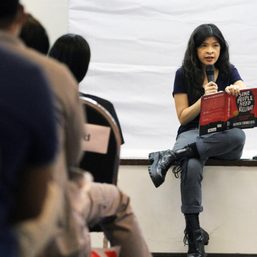

![[OPINION] ‘Some people need killing’](https://www.rappler.com/tachyon/2024/04/tl-some-people-need-killing-04172024.jpg?resize=257%2C257&crop_strategy=attention)



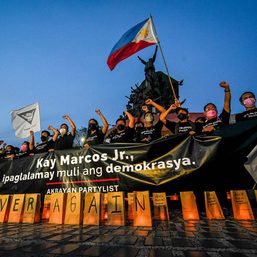
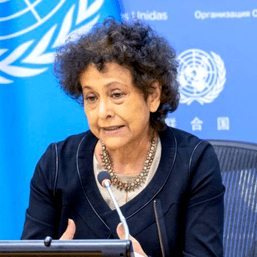
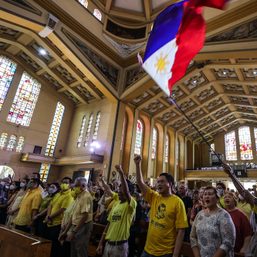
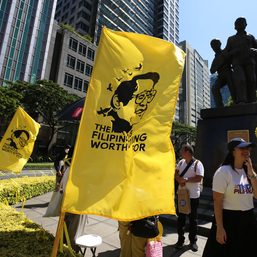

![[The Slingshot] Alden Delvo’s birthday](https://www.rappler.com/tachyon/2024/04/tl-alden-delvo-birthday.jpg?resize=257%2C257&crop=263px%2C0px%2C720px%2C720px)
![[EDITORIAL] Ang low-intensity warfare ni Marcos kung saan attack dog na ang First Lady](https://www.rappler.com/tachyon/2024/04/animated-liza-marcos-sara-duterte-feud-carousel.jpg?resize=257%2C257&crop=294px%2C0px%2C720px%2C720px)
![[Newsstand] Duterte vs Marcos: A rift impossible to bridge, a wound impossible to heal](https://www.rappler.com/tachyon/2024/04/duterte-marcos-rift-apr-20-2024.jpg?resize=257%2C257&crop=278px%2C0px%2C720px%2C720px)

![[Rappler’s Best] Patricia Evangelista](https://www.rappler.com/tachyon/2024/04/unnamed-9-1.jpg?resize=257%2C257&crop=486px%2C0px%2C1333px%2C1333px)

There are no comments yet. Add your comment to start the conversation.